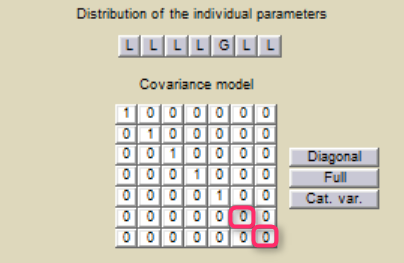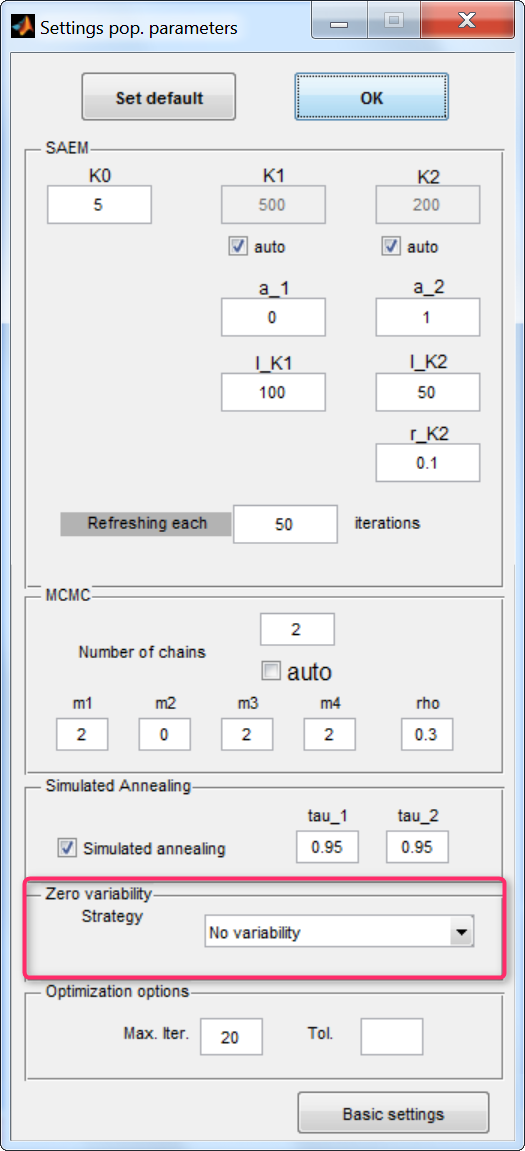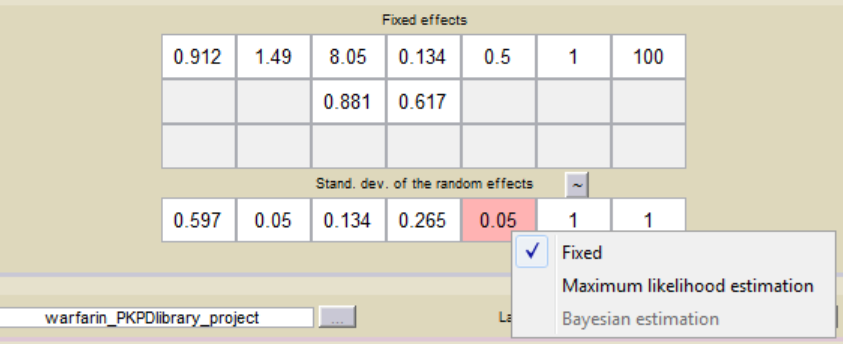Adding/removing inter-individual variability
By default, all parameters have inter-individual variability. To remove it, click on the corresponding diagonal elements of the variance-covariance matrix:

The initial value for the standard deviation of the random effect (omega parameters) will be grayed out.
Choosing a method for the parameters without variability
Parameters without variability are not estimated in the same way as parameter with variability. Indeed, the SAEM algorithm requires to draw parameter values from their marginal distribution, which exists only for parameters with variability.
Several methods can be used to estimate the parameters without variability. By default, these parameters are optimized using the Nelder-Mead simplex algorithm (Matlab’s fminsearch method). Other options are also available in “Settings > Pop. parameters > Advanced settings”, in the “zero-variability” section:

- No variability (default): optimization via Nelder-Mead simplex algorithm (Matlab’s fminsearch method)
- Add decreasing variability: an artificial variability is added for these parameters, allowing estimation via SAEM. The variability is progressively forced to zero, such that at the end of the estimation proces, the parameter has no variability.
- Variability in the first stage: during the first phase, an artificial variability is added and progressively forced to zero. In the second phase, the Nelder-Mead simplex algorithm is used.
- Mixed method: alternates between SAEM with an artificial variability and Nelder-Mead simplex algorithm
Depending on the specific project, one or the other method may lead to a better convergence. If the default method does not provide satisfying results, it is worth trying the other methods.
Alternatively, the standard deviation of the random effects can be fixed to a small value, for instance 5% for log-normally distributed parameters. To enforce a fixed value, right click on the initial omega value.

With this method, the SAEM algorithm can be used, and the variability is kept small.